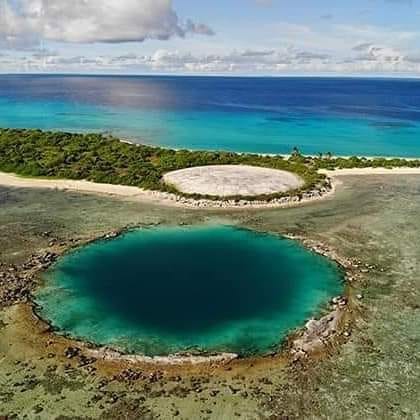Within days of United States congressional leaders and executive branch officials telling Marshall Islands leaders there was no more money for nuclear test compensation, the U.S Senate passed legislation expanding nuclear compensation to more Americans in the U.S mainland and also living on Guam.
The Senate legislation seeks to expand the Radiation Exposure Compensation Act of 1990. This law currently provides compensation to American Downwinders who lived near the Nevada Test Site, uranium miners, and people who worked at nuclear sites.
The new legislation expands the time period of eligibility for uranium miners from the previous deadline of 1971 to 1990, which means many more workers will be eligible. It also aims to support compensation for people in Guam — who live over a thousand miles away from the Bikini and Enewetak test sites in the Marshall Islands — and other U.S. jurisdictions affected by nuclear testing.
In the Marshall Islands, however, the U.S definition of those “exposed” is limited to four atolls despite U.S government studies that show many more islands in the country were exposed to nuclear test fallout. Prior to it running out of compensation funds in the late 2000s, the Nuclear Claims Tribunal compared fallout exposures of American Downwinders and Marshallese. It noted that the highest exposures among American Downwinders were lower than the lowest exposures of Marshallese.
The irony of the U.S nuclear test compensation disparity is not lost on Marshallese.
“As nuclear test victim ourselves, we support compensation for American victims of nuclear tests, whether they are Downwinders or worked at nuclear test sites or worked in uranium mines,” Marshall Islands Speaker Kenneth Kedi, who represents Rongelap, was quoted Friday in the Marshall Islands Journal. “But the fact that U.S authorities can tell the Marshall Islands there is ‘no more money’ for nuclear test exposure for people who lived through 67 of the largest U.S nuclear weapons tests ever conducted while at the same time preparing to expand compensation coverage for Americans is astounding.”
The U.S. government launched its Radiation Exposure Compensation Act in 1990 with a US$100 million appropriation from the Congress. Over 30 years later, the U.S Justice Department has paid out awards amounting to over US$2 billion because when additional compensation was needed, the U.S Congress appropriated more funding.
In contrast, for the Marshall Islands, which was subjected to weapons testing over 90 times the megatonnage of the Nevada nuclear tests, the U.S provided the Marshall Islands with a US$150 million fund as the “full and final” compensation and has refused to respond to Marshall Islands government requests to provide additional compensation in the ensuing 37 years since the first Compact of Free Association went into effect. Despite the fact that the Nuclear Claims Tribunal was an entity created by the first Compact of Association to adjudicate nuclear claims, the Marshall Islands government’s entreaties to the United States for funding to pay the over US$3 billion in Tribunal awards have received a cold shoulder.
“We have no issue with people of Guam qualifying for U.S nuclear compensation,” Kedi commented. “But if the people of Guam, who are 1,400 miles away from Bikini, are eligible for compensation, what about the many Marshallese who lived much closer to the testing who according to the U.S are not radiation affected?”
The Tribunal award for Rongelap Atoll, which was not paid for lack of funds, is the largest of the Tribunal awards for four U.S-acknowledged nuclear affected atolls of Bikini, Enewetak, Rongelap and Utrok — in part due to the need to fund cleanup of dozens of islands that remain radioactive from a snowstorm of radioactive fallout from the 1954 Bravo hydrogen bomb explosion at Bikini.
In the ongoing Compact money negotiations this year, the U.S government has continued to balk at any acknowledgement of the need to provide additional nuclear legacy funding for the Marshall Islands. An agreement signed between Washington and Majuro in January spelling out funding levels does not mention the word “nuclear.”
Instead, the U.S negotiators have proposed US$700 million to be put into the government’s Compact Trust Fund for the Marshall Islands to decide what it is used for. While Marshall Islands leaders see it as money for the nuclear awards, it is less than a quarter of the over US$3 billion in Tribunal awards.
“The fact that the U.S government remains unwilling to fully respond to the adjudicated Nuclear Claims Tribunal compensation awards of over US$3 billion, while it fully compensates Americans, is an irony not lost on us,” Kedi said. “We will continue to engage with the U.S on the US$3 billion debt and obligation. The U.S-Marshall Islands relationship is based of reciprocity and mutual benefits to both (parties). People of Marshall Islands will continue to support the U.S in with its Indo-Pacific strategy and we ask that the debt be fully addressed.”
The Speaker encapsulated a common sentiment in the Marshall Islands: “The people of Marshall Islands are asking U.S to simply treat your friends equitably like you do to our Nevada Downwinders and now Guam Downwinders.”
SOURCE: MARIANAS VARIETY/PACNEWS














